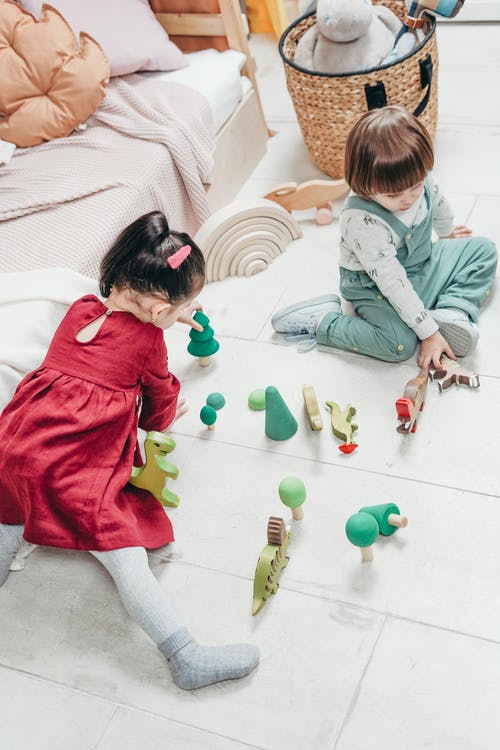
You know the drill — one minute your children are playing perfectly well together and having a great time, then as soon as you turn around (it seems), they are arguing and shouting. You sigh, exasperated, “when will they ever learn?!”
I have three children, so I get it. That has been me, too. Countless times! It does seem like any pair of them can play well, but enter the third, and it’s all over. “When will they ever learn?!” Here’s the secret: if you don’t teach them, how can they learn? An enormous part of parenting is teaching your children, right? You teach them to color, read, write, how to do puzzles, you name it! So, we also need to teach them how to play together. It seems kind of odd, even as I’m typing this “how to play together”, but it’s true. I like to think of myself as their play coach or even life coach. I coach them, lovingly and respectfully. They learn. And one of my best and now favorite coaching tools is using do-overs. Let me give you an example:
After a while of playing nicely, I hear some angry voices. “You just took that from me!” “It was my turn!” “Don’t take toys!” — Uh-oh. I know where this is headed. I walk over (try to remember to breathe deeply first) and repeat what I hear. “It sounds like you took a toy from her. Is that what happened?” Let them say their version of events and listen to them and repeat them, so they know they are being heard and understood. Then, without judgement, offer them a do-over. If they are very young and need to be reminded of a rule, you should insert this as well and then explain what you mean by a do-over. Even with a young child, you can always ask the event was very polite or respectful of each other. I say, “Let’s have a do-over. Back up, and let’s try this again, using the rules of the house and being polite.” I will say that the first few times I tried this they just looked at me incredulously or if I had just lost my mind. Haha! We got used to it after a while. It has been an absolutely fantastic teaching tool that allows everyone to stay calm and avoids punishment. Our goal here is to simply teach, remember.
You can also use do-overs to teach negotiation skills. If you have just broken up an argument because they each want their own way, for example, you can have them come up with solutions to their problem, after repeating to them what you hear them say, then have them do the scenario over using the newly offered and agreed-upon solution. It can take weeks or even months, but after a while of good, calm, and consistent coaching, you’ll be amazed at how well they can start to work through their problems themselves, especially for children over 5 years of age. For example, yesterday I was letting my children play in some water. Their laughter started to sound like it was turning into some arguing. I just looked up from the bushes I was trimming right next to them and said calmly and politely, “let’s not forget our negotiation tactics if you will find those helpful.” “Ok!” they said, and resumed their fun having worked out their dispute in a friendly way. I felt confident that all of our coaching sessions had worked, and it turned out in this case I was right. If they needed help problem-solving, they definitely would have let me know about it!
Do-overs are a fantastic tool. It might take some trial and error for each of you to figure out how best to accomplish your goals and get the do-overs to work, but you won’t regret the extra effort. I love that I can now just ask them to try their conversation or scenario again, and they usually will, knowing exactly what went wrong. (Of course, with really young children, they will require more of your help.) After some time of being more consistent with the do-over and problem-solving coaching, I am finding that they are able and more willing to work through their issues and come up with solutions much more amicably. Do-overs allow them to practice those skills. Much more often than not now they can all three play together well, having fun and truly enjoying each other. And what’s best? I did it mostly through teaching them: avoiding scolding, punishment, and argument. When I put my proverbial “coach’s cap” on, I more effectively remember that I am their life coach, as well as their mother, and can coach them to work through their sibling quarrels capably, thereby building their relationship with each other and learning to work effectually with peers as an adult.
